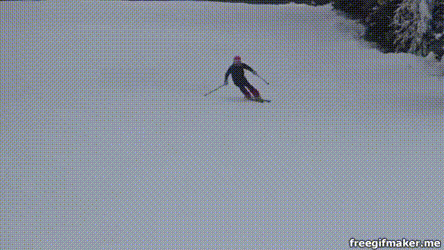Deliberate Practice
Subscribe
Pub
Share
While the exact mechanism through which the brain learns something may be subject to debate (myelin or growing new connections etc) we can all agree that repetition and practice is what is creating improvement. Not any kind of repetition though, but one focused and deliberate - this is the only way worth practicing a skill, if you are intent on getting better at it quickly.
Practice does not make perfect. Only perfect practice makes perfect.
Vince Lombardi
Here are some of the characteristics of deliberate and purposeful practice:
- focus and intensity
- pushing the limits of current ability (but not too much)
- repetition with variation and feedback loop
- having specific short term and long term goals
- the inner critic
There is a big difference between just messing around, pretending you practice and deliberate practice, where you are focused and practice logically and with intensity.
Here's a great article, if you find my description not up to par: A Better Way to Practice
Deliberate practice in skiing
The topics and sessions on this website will guide you through the skills to work on, in a good sequence and corresponding to your current skill, but instead of “just skiing” you will need to pay attention to your skiing. The tech talks will aim to send across one concept and create a mental model of it. The sessions will be focusing on one skill at a time, one movement or sequence of movements and compare your cues with the mental model we created in the tech talks.
Complement this with a few drills and especially merging the drills into your skiing. Then, take video to verify and give yourself feedback. It’s easy when you know what to look for. If not, just send the video for MA.
Pay attention to your movements, to the feelings accompanying those movements, the results and feelings accompanying those results. Match those to the mental models we've created for that activity and maintain focus – it is better to train for shorter duration but with 100% focus than to train longer with less focus: this is why we think just 1-2 hours a day of intense practice may be enough and then you can get on with "just skiing".
Whenever external cues are provided, pay attention to them – often it’s just looking at this or that and making sure it does or looks like what is supposed to look like.
And I’d say: ‘No, I want to stay on the racecourse and train. I’m working on my pole plants.’ I wanted to get better at something every day.”
Dealing with plateaus
What do we do when you reach a plateau in this or that direction? You have to continue to challenge yourself, but in a different way. Try something else or try it in a different way. Do one of the other drills related to the same skill. Move to the next session or even level and come back later.
Components
Logic and reason
You must understand the physics or mechanism underlying the skill you are practicing, otherwise you will not get anywhere. You're applying the 'theory' and observe the outcome and fine-tune.
Focus and Intensity
For learning to take place, focus and intensity must be present. I don't think one can go without the other. You must be focused to perceive every little sensation, translating that into how well you think you did. Either knowingly or unknowingly, your brain will apply corrections and retry, fine-tuning the performance.
Repetition and variation
The mechanism by which we learn something is decomposing a complex skill in parts and repeating every part, improving until they all come together in a perfect execution of the respective skill. This will not really happen until we are dedicated and deliberately practice each part with the focus and intensity required to burn it into our brains.
Variations are the basis for learning. You may not know the exact sequence to get a specific result, so you invent new ways of doing it, practicing each several times with intensity. The intensity and focus allows your brain to figure out the outcome and correct the inputs, in a feedback loop: "this was slower" or "this was safer" or "this sounded worse".
Putting a lot of variety into your practice when acquiring a new skill drives your accelerated learning. Now, there is useful variation and variation that just wastes time... a good coach can be a very useful guide.
Goals
Without goals, we'd be just drifting aimlessly in a field of possibilities... so deliberate practice requires goals. Long term goals and incremental steps to reach those, i.e. short term goals.
The inner critic
You will generally know when you did it 'right. You should listen and trust this inner critic - it will drive your feedback loop and improvement. You don't always need a coach or outsider for each practice session - you will know if you got it right or you didn't.
References:
- Peak - How to Master Almost Anything 1
- The Talent Code
- Decision training vs behavior training in alpine skiing
See more in: carving-blog Subscribe You need to log in to post a comment!
